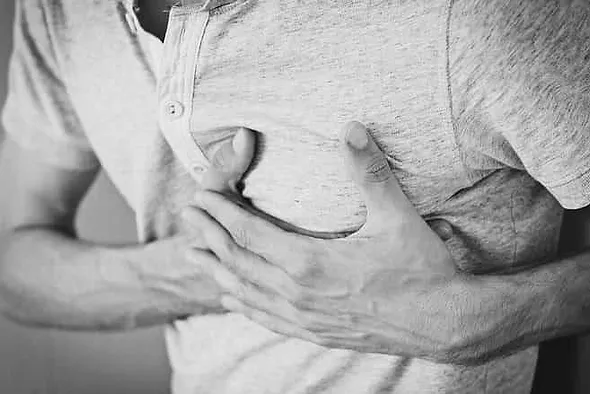A healthy lifestyle is a balance between physical health and mental health. Mental health is the complete well-being of a person’s social, emotional, and psychological state. For good physical health, one must have good mental health. There are multiple ways in which spiritual and psychological health affects people’s quality of life. The way you think, act, and feel is how your body responds. And that is why having poor mental health can lead to recurring physical conditions. Likewise, if chronic illness affects a person’s regular tasks, then it can lead to poor mental health like stress and depression. Let’s have a look at how physical health depends on psychiatric and psychological health.
1. Chronic illness
The Primary Care Companion for CNS Disorders states that the risk of getting a stroke, heart disease, diabetes, and cancer increases with depression. The prognostic indications of these chronic illnesses are significantly higher in patients with depression than in the rest of the population.
2. Immunity
Studies are still ongoing to see how depression influences physical health. According to a study published in the Journal of Psychiatria Danubina, there is a link between depression and the immune system. The physical changes caused by a depression-like sleep disorder, or insomnia, tend to weaken the immune system. Symptoms of depression-like poor diet and lack of physical activity also contribute to illness to occur. The physical changes caused by depression worsen the existing disease, i.e., depression. The effect of depression on immunity depends on external factors such as family and internal factors like gender. These two factors lead to a vicious cycle that can be cured only by treatment.
3. Longevity
A study published in the Official Journal of the World Psychiatric Association showed that patients with mental disorders had a higher mortality rate as compared to the general population. This pattern was found stronger in men with depression than in women. It is because of the coping strategy adopted by the male community by not showing negative emotions and not seeking professional help. Another study published in the Canadian Medical Association Journal suggests that the life span is 7 to 18 years shorter in patients with depression than in the general population.
4. Gastrointestinal problems
One of the ways mental and psychological health problems like stress and anxiety affect physical health is through gastrointestinal problems, including irritable bowel syndrome(IBS). Symptoms include cramping, bloating, abdominal pain, constipation, and diarrhea. People suffering from IBS, frequently experience depression and anxiety, which worsens the IBS symptoms. It happens because the nervous system responds to stress and controls the colon. Evidence suggests that relaxation techniques like meditation and deep breathing will keep your stress away and prevent IBS symptoms. You can also involve yourself in a fun activity, go shopping, or talk to a friend to keep the stress under control.
5. White-Coat Syndrome
The white-coat syndrome is a phenomenon experienced by people who get anxious during a clinical visit wherein their blood pressure increases above the normal range. The blood pressure is higher when taken in a medical setting than at home. Here anxiety is directly related to a physical function, which is blood pressure.
6. Body weight
According to the American Journal of Epidemiology, stress may influence dietary behaviors, which leads to weight change. Stressful events like losing a loved one, a financial crisis, or divorce can trigger hormonal changes. These hormonal changes cause loss of appetite, an increase in hunger, untimely meals, and cravings for unhealthy food, which leads to either weight gain or weight loss. The weight changes happen gradually. An increase in the stress hormone ‘cortisol’ turns over-eating into a habit. The body’s response to stress causes changes in metabolism, insulin management, and storage of fats in your body.
7. Heart Disease

As per the American Heart Association, one in 10 Americans aged 18 years or below is susceptible to heart disease. The symptoms of depression are three times higher in patients after an acute heart attack. The risk of getting depression increases after being diagnosed with heart disease, and likewise, depression also increases the probability of causing heart disease. Lack of emotional well-being causes blockage in heart vessels due to fatty deposits in the inner walls of arteries. Lifestyle habits by a patient with depression-like no exercise, poor diet, and alcohol consumption also contribute to cardiovascular risks.
Studies have shown that there is a higher risk of diabetes in people with depression. The symptoms like unhappiness, irritability, and sleep problems of depression make it difficult to treat and prevent diabetes-related complications. Depression affects the ability to communicate, perform tasks, and think. These can interfere with your ability to manage diabetes successfully.
9. Asthma
Asthma is more common in women and adults than men, and it affects almost 25 million Americans. As per Asthma UK, Stress triggers Asthma in Sixty-nine percent of people. The inflamed airways make it difficult to breathe and lead to breathing shortness. One of the significant reasons for asthma and anxiety is stress. It contributes to the usual asthma triggers like colds, flu, and pets. When under pressure, you might quickly get angry, and anger is an emotional asthma trigger. Stress also makes people drink and smoke, which is also a trigger for asthma symptoms.
10. Bruxism
Bruxism is a condition in which the person unconsciously grinds their teeth. It causes toothache, tooth sensitivity, jaw pain, earaches, and sleep disruption. The common causes of bruxism include crooked teeth, jaw misalignment, and anxiety or stress. If you are experiencing bruxism due to misaligned teeth, then going through a pain free dentist inspection will cure it. But if it’s due to anxiety, then consult a counselor to go through stress management techniques to relieve it.
Conclusion
These are the effects of poor mental and psychological health on physical health. To prevent mental illness, it is essential to understand the link between body and mind. This will help in developing strategies to cure physical and mental conditions. A few actions that you can take to reduce mental stress and anxiety are self-love, exercise, healthy living, quitting alcohol/smoking, and talking to your loved one. Other than these, consult a doctor to know further about how to reduce stress.



























